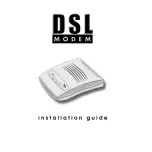
Advanced Configuration Options
54
Model 3202 Getting Started Guide
4 • Web configuration
The standardized DiffServ field of the packet is marked with a value so that the packet receives a particular for-
warding treatment at each network node. RFC 2597 defines the assured forwarding (AF) classes. There are
four AF classes, AF1x through AF4x. Within each class, there are three drop probabilities. Depending on a
given network's policy, packets can be selected for a PHB based on required throughput, delay, jitter, loss, or
according to priority of access to network services. Classes 1 through 4 are referred to as AF classes.
Table 13
illustrates the DSCP coding for specifying the AF class with the probability. Bits 0, 1, and 2 define
the class; bits 3 and 4 specify the drop probability; bit 5 is always 0.
Table 12. Bits in the DSCP field
Bit 0
Bit 1
Bit 2
Precedence
Usage
1
1
1
7
Stays the same (link layer and routing protocol keep alive)
1
1
0
6
Stays the same(used for IP routing Protocols)
1
0
1
5
Express Forwarding (EF)
1
0
0
4
Class 4
0
1
1
3
Class 3
0
1
0
2
Class 2
0
0
1
1
Class 1
0
0
0
0
Best effort
Bit 3
Bit 4
Bit 5
Usage
Meaning
0
–
–
Delay
Normal
1
–
–
Delay
Low
–
0
–
Throughput
Normal
–
1
–
Throughput
High
–
–
0
Reliability
Normal
–
–
1
Reliability
High
Table 13. DSCP Coding
Class 1
Class 2
Class 3
Class 4
Low Drop
001010
AF11
DSCP 10
010010
AF21
DSCP 18
011010
AF31
DSCP 26
100010
AF41
DSCP 34
Medium Drop
001100
AF12
DSCP 12
010100
AF22
DSCP 20
011100
AF32
DSCP 28
100100
AF42
DSCP 36
High Drop
001110
AF13
DSCP 14
010110
AF23
DSCP 22
011110
AF33
DSCP 30
100110
AF43
DSCP 38
















































